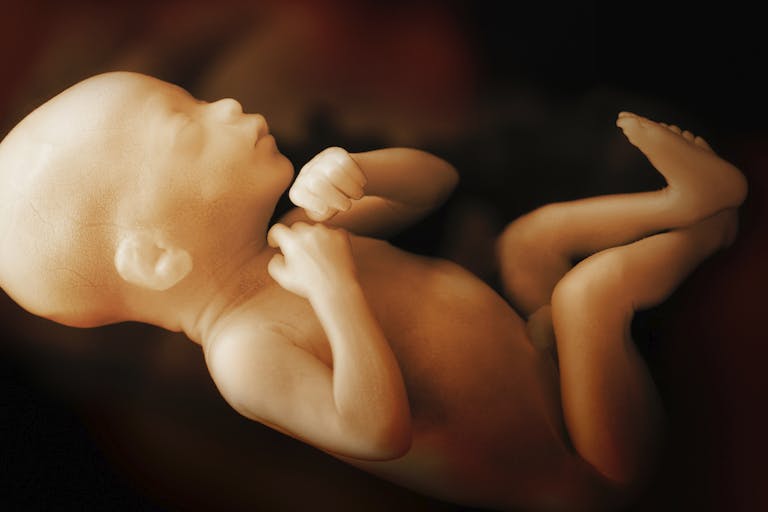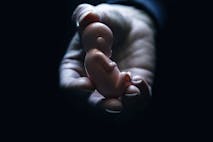
Vietnamese Catholics widen support for pregnant mothers
Angeline Tan
·
Roe is overturned, but preborn humans still don’t have equal protection under the law
The Supreme Court ruled last Friday to overturn Roe v. Wade, the 1973 decision that ensured abortion was legal until at least 24 weeks of pregnancy in every single state. However, the ruling issued in Dobbs v. Jackson Women’s Health Organization failed to provide protections for preborn human beings and only went so far as to tell states that they can allow abortion through all nine months of pregnancy or not allow it at all. Pro-life states will be able to restrict abortion, but the reasoning behind the Court’s decision is flawed, and pro-lifers must continue their efforts to end abortion completely and restore justice for vulnerable human beings in the womb.
Legal abortion is unconstitutional
The overturning of Roe is a win for the pro-life movement, but it didn’t do enough. The Court determined that the Constitution does not contain a right to abortion, but failed to state that the 14th Amendment actually prohibits states from denying “the equal protection of the laws” to “any person.” When the Amendment was adopted in 1868, the term “person” was synonymous with the term “human being.” The Amendment was meant to protect all human beings. This would include preborn human beings from the moment of fertilization.
“The right to abortion does not fall within this category. Until the latter part of the 20th century, such a right was entirely unknown in American law,” wrote Justice Alito. “Indeed, when the Fourteenth Amendment was adopted, three-quarters of the States made abortion a crime at all stages of pregnancy.”
It is because of this that it is state laws allowing abortion that are unconstitutional. They deny equal protection to preborn humans and subject them to discriminatory treatment.
READ: Christian leaders react to Supreme Court decision overturning Roe v. Wade
Abortion kills innocent human beings
In the majority opinion, the Court recognized four times that abortion takes a human life. Alito wrote on page five (emphasis added):
Article continues below
Dear Reader,
In 2026, Live Action is heading straight where the battle is fiercest: college campuses.
We have a bold initiative to establish 100 Live Action campus chapters within the next year, and your partnership will make it a success!
Your support today will help train and equip young leaders, bring Live Action’s educational content into academic environments, host on-campus events and debates, and empower students to challenge the pro-abortion status quo with truth and compassion.
Invest in pro-life grassroots outreach and cultural formation with your DOUBLED year-end gift!
The abortion right is also critically different from any other right that this Court has held to fall within the Fourteenth Amendment’s protection of ‘liberty.’ Roe’s defenders characterize the abortion right as similar to the rights recognized in past decisions involving matters such as intimate sexual relations, contraception, and marriage, but abortion is fundamentally different, as both Roe and Casey acknowledged because it destroys what those decisions called ‘fetal life’ and what the law now before us describes as an ‘unborn human being.’
On page 32, Alito wrote, “What sharply distinguishes the abortion right from the rights recognized in the cases on which Roe and Casey rely is something that both those decisions acknowledged: Abortion destroys what those decisions call ‘potential life’ and what the law at issue in this case regards as the life of an ‘unborn human being.'”
Additionally, the opinion reads on page 49, “[…] what is distinctive about abortion: its effect on what Roe termed ‘potential life.'”
And finally, Alito said on page 66, “As even the Casey plurality recognized, ‘[a]bortion is a unique act because it terminates ‘life or potential life.’ 505 U. S., at 852; see also Roe, 410 U. S., at 159 (abortion is ‘inherently different from marital intimacy,’ ‘marriage,’ or ‘procreation’). And to ensure that our decision is not misunderstood or mischaracterized, we emphasize that our decision concerns the constitutional right to abortion and no other right.”
It is scientifically understood now, nearly 50 years after Roe, that life inside the womb is not just the “potential” for life; things that are not alive do not grow and human beings in the womb are growing, have beating hearts by 21 days after fertilization, and have brain wave activity that begins at about six weeks. From the moment of fertilization, these newly formed human beings are changing and developing and they will continue to do so throughout their lives both inside and outside the womb.

Preborn children deserve protection from homicide, not a passing of the buck from the Supreme Court to state legislators about who regulates which preborn humans are allowed to be murdered at what ages of gestation. No legislators at the state or federal level have the right to discriminate against any human being by deeming some to be deserving of violent deaths. The Court’s failure to guarantee the equal protection of human beings under the law is a continuation of the injustice that Roe v. Wade unleashed upon America five decades ago.
“Like” Live Action News on Facebook for more pro-life news and commentary!
Live Action News is pro-life news and commentary from a pro-life perspective.
Contact editor@liveaction.org for questions, corrections, or if you are seeking permission to reprint any Live Action News content.
Guest Articles: To submit a guest article to Live Action News, email editor@liveaction.org with an attached Word document of 800-1000 words. Please also attach any photos relevant to your submission if applicable. If your submission is accepted for publication, you will be notified within three weeks. Guest articles are not compensated (see our Open License Agreement). Thank you for your interest in Live Action News!

Angeline Tan
·
Analysis
Cassy Cooke
·
Analysis
Cassy Cooke
·
Analysis
Cassy Cooke
·
Analysis
Cassy Cooke
·
Analysis
Nancy Flanders
·
Human Interest
Nancy Flanders
·
Politics
Nancy Flanders
·
Human Interest
Nancy Flanders
·
Politics
Nancy Flanders
·
Human Interest
Nancy Flanders
·